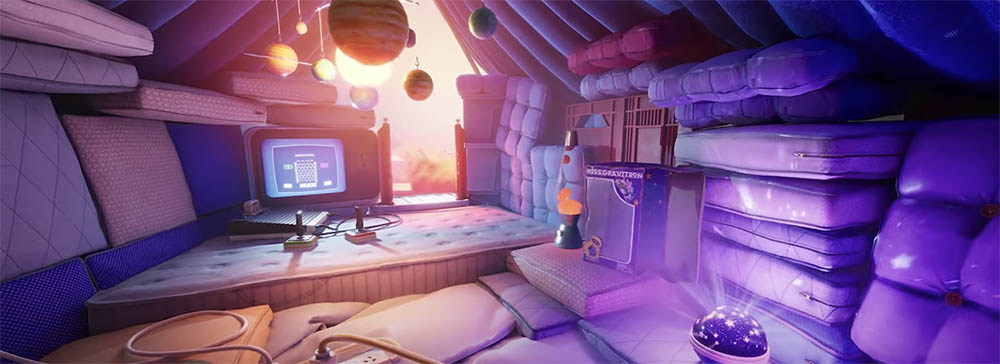
You might remember Josef Fares from his impassioned speech at the 2017 Video Game Awards, where he famously denounced the Oscars. They called him a madman, but he knew. He knew. He said the Game Awards was the real place to be for innovation in storytelling, and gosh darn it, he was right, and it’s going to be especially true of his next game, It Takes Two, which is expected to drop in 2021.
Fares is one of the few developers in the gaming world who remains laser-focused on telling a story through gameplay, not just in the cutscenes between gameplay. He understands that the entire appeal of interactive entertainment is conveying the themes in the players’ choices, and his last two games have done that spectacularly. Here’s why Brothers: A Tale of Two Sons and A Way Out have both got us excited for Fares’ upcoming title, with minimal spoilers, because you should absolutely play these games after you read this.
Brothers is a very short and sweet single-player experience about, you know, two brothers, who set out on a journey fraught with danger to collect a very rare medicine for their sick father. The unique gimmick of this game is that you control the two bros simultaneously, with one controller, one brother for each thumbstick. The unnamed older brother and younger brother have abilities unique to them, like the older brother can move heavier objects that the younger can’t, and the little brother can fit through smaller spaces that the older can’t, so you have to use their moves in combination with each other for the many fun puzzles in the game.
The best puzzles, though, are the ones that leverage their different personalities, rather than their different physical abilities. In one puzzle, you have to wake up a sleeping man to lower a bridge. The older brother is too polite, he doesn’t wake the man up, but the younger brother is cheekier and more mischievous, and will throw a bucket of water onto this poor bridge operator to wake him up, at which point the older brother needs to ask him to lower the bridge. It’s a pretty simple puzzle, but in a few small interactions it reveals basically everything you need to know about the brothers. It didn’t take a cutscene, just the player figuring it out themselves.
Brothers is filled with moments like this, and puzzles that emphasise the brother’s relationship and personalities, which is even more impressive considering not a single word is spoken. It’s all pantomime and grunts, yet I was still in tears by the end.
A Way Out is even more ambitious than Brothers, with a much longer, fully-fledged story, complete with full voice acting and mocap, and, it can only be played by two people together. There are plenty of puzzles that require a lot of coordination with your partner, which always lead to some funny and hype moments, but the real highlights are in the downtime between the missions. It only takes about half a day to complete, but my brother and I must have spent at least half the playtime just fooling around with the side content, playing basketball, darts, connect four, arcade machines in the world, it was fun!
The main missions are just as fun, Fares clearly has a love for goofy action-blockbuster set pieces, and there are a lot of moments that are so massive and silly, it’s hard not to laugh and just appreciate the spectacle, especially when it’s riffing on popular movies like Scarface with zero subtlety. Subtlety is really not in the Josef Fares playbook, and his games are better for it.
The two characters, Leo and Vincent, are also incredibly well thought out. They are kinda caricatures and archetypal, larger-than-life like the gameplay, but the story takes you through enough of their personal lives and emotions within the missions that you can’t help but love them by the end.
Since you’ve got the serious one and the not-so-bright one that you get to choose at the start, your characters react differently to the world, and the story allows you at points to pick your approach to scenarios based on the characters. My brother chose the more serious one, so he always wanted to pick the smart, quiet options, and I wanted to go in loud and dumb. Even just arguing outside of the game and picking the strategies is a fun time!
Even the slow, pensive moments of the game were presented in such a way that they were always engaging. For example, the entire game is in split-screen, so at one point, my brother’s half of the screen was showing an emotional cutscene between two lovers, while I was on my screen, folding a child in basketball. The juxtaposition was hilarious, but shockingly it didn’t detract from the emotional weight of the scene playing out, because when your writing is that solid, you can get away with being goofy, something other games trying to be hyper-serious could learn from. When my brother and I finished the gam,e we just had to put our controllers down in shock for a moment and process what we had just seen – it’s definitely worth it to play it all in one sitting if you can.
Not only did the goofy gameplay not take away from the serious story, it enhanced it, and that is what Josef Fares excels at. That’s why our hopes are so high for It Takes Two, a game about a little girl processing her parents’ marital problems through the use of two dolls that you control. It’s going to be another multiplayer-exclusive experience like A Way Out, and we can’t wait to see how Hazelight smartly addresses difficult subject matter through puzzles experienced in the mind of a child. Fares has promised that the levels and mechanics themselves are going to reflect the emotional themes of the story, and quite frankly, we trust him. If it’s even half as good as his previous two games, it’s going to be excellent.









